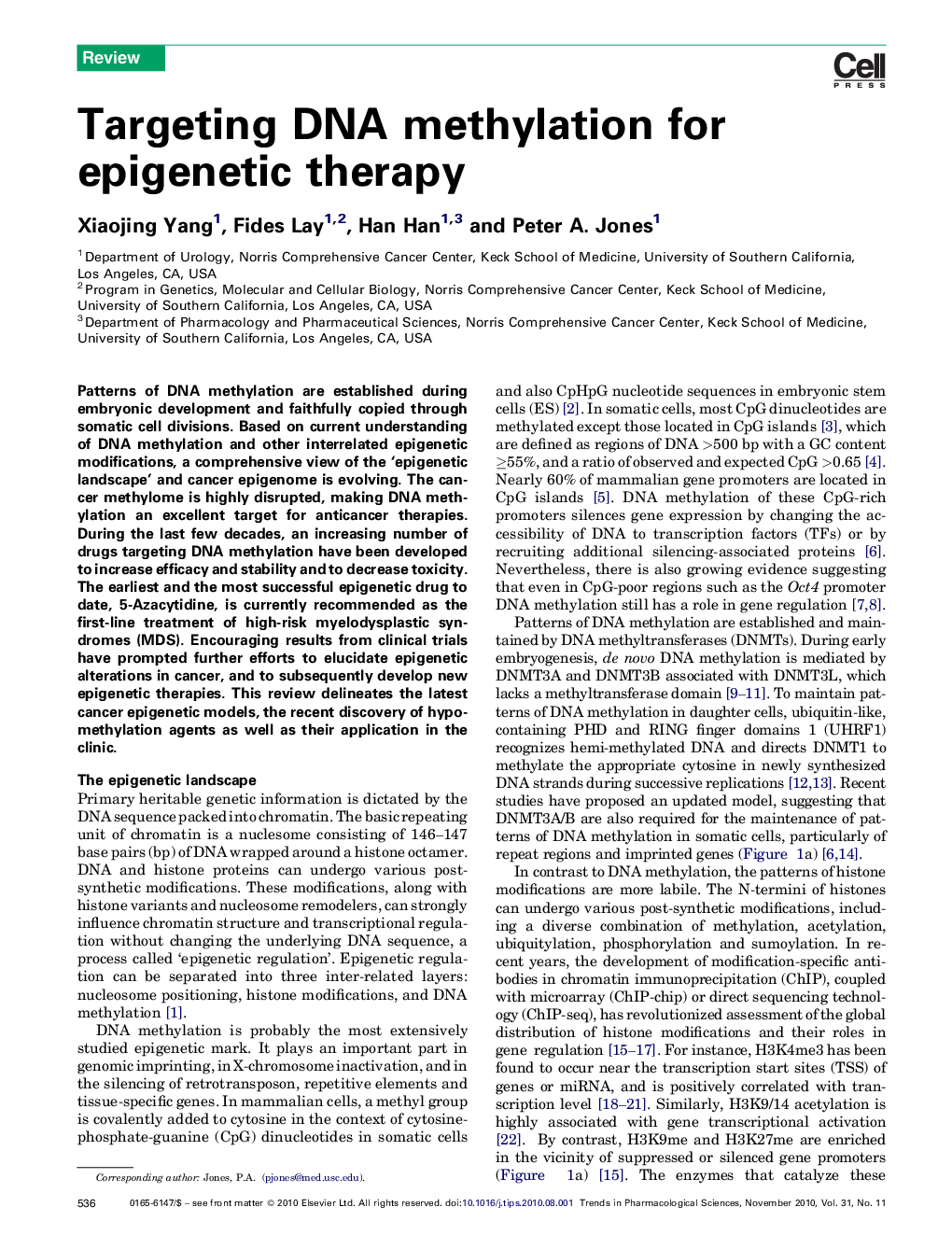| Article ID | Journal | Published Year | Pages | File Type |
|---|---|---|---|---|
| 2573118 | Trends in Pharmacological Sciences | 2010 | 11 Pages |
Patterns of DNA methylation are established during embryonic development and faithfully copied through somatic cell divisions. Based on current understanding of DNA methylation and other interrelated epigenetic modifications, a comprehensive view of the ‘epigenetic landscape’ and cancer epigenome is evolving. The cancer methylome is highly disrupted, making DNA methylation an excellent target for anticancer therapies. During the last few decades, an increasing number of drugs targeting DNA methylation have been developed to increase efficacy and stability and to decrease toxicity. The earliest and the most successful epigenetic drug to date, 5-Azacytidine, is currently recommended as the first-line treatment of high-risk myelodysplastic syndromes (MDS). Encouraging results from clinical trials have prompted further efforts to elucidate epigenetic alterations in cancer, and to subsequently develop new epigenetic therapies. This review delineates the latest cancer epigenetic models, the recent discovery of hypomethylation agents as well as their application in the clinic.
